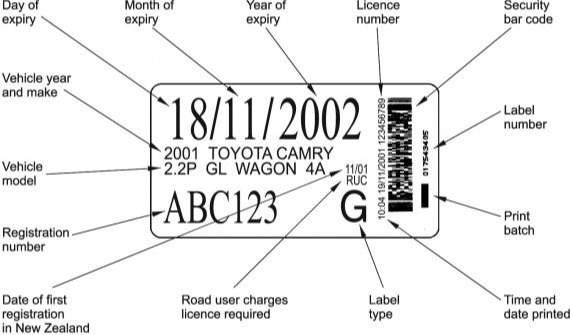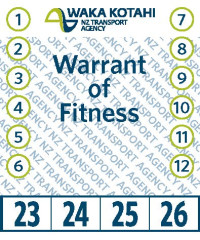Getting around and Driver's Licences
There is currently no public bus service operating in our district but there are other options:
In Ashburton, taxis can be ordered by phone. Contact Ashburton Taxis on 03 308 2288. it is a door-to-door service.
The Mid Canterbury Connector is operated by a trust and provides transport for people who don’t drive/no longer drive, from around Ashburton District into Ashburton Township, for medical/dental appointments, doing business with Council, seeing friends and family, shopping, attending WINZ appointments etc.
The service operates Monday to Friday between 9am and 4.30pm, on demand. Passengers need to book at least 2 days in advance – phone 03 9288164.
Bus companies provide services from Ashburton and Methven to Christchurch, Timaru and Dunedin.
The Mid Canterbury Shuttle Services travels to Christchurch daily, we suggest you get in touch with them to confirm their hours of work and prices. To visit their website, click here
For further information on these services, contact the Methven i-hub at 03 302 8955 or visit website
If you live in the urban area of Ashburton, cycling or walking can be great, healthy, and affordable ways to travel. Distances in town are relatively short and you can bike or walk to work or school.
Check the weather conditions and prepare for them. Wear layers and sunscreen.
Follow these tips from NZ Transport Agency | Waka Kotahi to stay safe:
When biking
- Wear a helmet.
- If you are on a shared path, give people around you some space and slow down.
- Make yourself visible, wear fluorescent or reflective clothes and make sure you have a white light pointing slightly downwards on the front, and a red one at the back of your bike. Ensure you turn them on when it is dark.
When walking
- Use pedestrian crossings or cross at traffic signals.
- Check for moving vehicles at every driveway.
- Walk on the footpath if there is one.
- Hold children's hands if you are walking near roads or in car parks.
- Be kind when passing others on the footpath, especially if you're moving faster than them. Give enough space to avoid scaring them or causing danger.
For more recommendations on how to keep yourself safe, check out this resource
You must have a driver's licence. You can use an international driver's licence or permit for up to 18 months, after which you will need to convert to a New Zealand driver's licence.
The road rules are explained in the Road Code which is available at the Ashburton library, online at Road code - All updates | Waka Kotahi NZ Transport Agency (nzta.govt.nz) or you can buy one at most bookshops.
By law, everyone in the car must wear a seat belt and children under the age of seven must be in a car seat. If your child is seven or older, they may need a booster seat. It is recommended for kids to ride in the back seat, to keep them safe.
To drive in New Zealand, a person must have a valid driver's licence, obtained in three stages:
- Learner licence (Must be 16 years old).
- Restricted licence
- Full licence
If you have a valid or current overseas driver's licence or international driving permit, you can drive using this permit for a maximum of 18 months from the date of your arrival in New Zealand, then you will have to convert your overseas licence to a New Zealand one.
Information on getting a New Zealand driver's licence can be found on the Waka Kotahi NZ Transport Agency website Driver licences | Waka Kotahi NZ Transport Agency (nzta.govt.nz) You can also visit the Automobile Association (AA) based at Paper Plus on 212 East Street, Ashburton or on 0800 500 444, they can help you book a learner licence, driving lessons, licence renewal, international driving permits and licence conversions.
New Zealand Transport Agency (NZTA)
If you would like to book a test for your restricted or full licence you can visit NZTA on 390 West Street or give them a call on 0 800 822 422.
Additionally, some programmes support people to process their restricted or full licences.
Salvation Army
Find out more about the Driving Mentoring Programme they offer. This service is specifically for citizens and residents.
The Y
Find out more about their Y-Drive Driving School packages. This service is specifically for citizens and residents.
Ashburton Learning Centre
They provide Driver's Licence support to pass your learner licence theory. Get in touch on 03 308 5322 or visit their website
Rural Drivers' Programme
This programme offers free support, tuition, and subsidised driving tests to help rural-based people learn to drive. It is specifically for people living or working rurally and available to people on work visas. Find out more here
Mayor's Taskforce for Jobs (MTFJ)
This programme can help you process your licence if it is a barrier to employment. To get in touch, contact Sharon Watson at 027 340 1368, email sharon.watson@adc.govt.nz or check out their Facebook page here
Registration
When you own a car, you need to keep it licensed to be able to circulate on the road.
There is a fee you will pay regularly (every 3, 6 or 12 months). This is known as "rego". To find out whether the rego is expired or still valid, you can check the date on the card on the lower corner of the windshield.
It looks like this:

To process your rego, visit the closest Automobile Association (AA) located inside Paper Plus (212 East Street, Ashburton) or process it online through this link To find out how much you have to pay for your car visit this link
Warrant of Fitness
A warrant of fitness (WoF) is a regular check to ensure your vehicle meets safety standards. For example, the condition of the tyres and brakes, structural condition (no rust in certain areas), lights, windscreen, and more. Check out this link to find out what a warrant inspection covers.
Check your vehicle regularly to ensure it is safe to drive, don't wait until the WoF to check it.
A WoF will be required annually, unless you buy a car first registered before 1 January 2000, then it has to be inspected every 6 months.
The WoF label looks like this and can be found on your windscreen.

To process your WoF, you can make an appointment at your preferred garage and the cost goes from $50 to $70.
It is recommended to get insurance when you buy a car.
Car insurance can provide coverage if:
- Your car is damaged or stolen.
- You damage someone else's property or car.
The coverage and the amount your insurance company will pay depends on the type of coverage and policy you have.
There are different types of policies:
Third party:
- Which covers you if you damage someone else's car either when it is parked or if it is a traffic accident.
- You lose control of the vehicle and damage a fence.
If you have third-party insurance and someone else hits your car and admits fault, their insurance should cover the repair costs. If the at-fault person doesn't have insurance, your insurer may seek compensation for you.
Third Party, Fire, and Theft:
- Which covers damage you cause to someone else's property or car.
If your car is stolen or catches fire.
Comprehensive:
- Which covers accidents you cause or are caused by someone else.
- Damage to your property or car and someone else's property or car.
- Additional costs like towing fees if your car breaks down or is in an accident.
Comprehensive insurance is usually more expensive but covers a wider range of situations, including damage to your car.
Compare insurance prices and read carefully the policies to ensure they provide you with the coverage you need. With a simple search on the internet, you will find different insurance companies.
Road safety
This is the maximum legal speed that you can travel at on a road in perfect conditions. Keep an eye on changes in traffic (high number of cars on the road, pedestrians, cyclists, holidays, parked cars), if there is road (bumpy or narrow areas, wet, icy or gravel surfaces, and signs) and weather conditions (rain, snow and ice, wind, fog and bright sunlight) and reduce your speed accordingly.
If you're over 20 years of age, you can have no more than two to three servings of alcohol if you are a man, and no more than one to two for a woman. If you're under 20, you can't have any alcohol when driving.
Always keep in mind:
- Plan not to drive if you plan to drink.
- Ask bartenders for help getting home.
- Don't be influenced by others.
Drinking and driving risk more than just losing your license. Stay safe, don't drink and drive.
Driving under the influence of medication or illegal drugs is dangerous and illegal. It can affect your perception and reaction time, cause fatigue, and put yourself and others at risk.
Don't drive when physically or emotionally impaired.
This can be described as feeling exhausted. You might lose alertness, and this affects your mood, driving and the way you respond to risks.
If you feel drowsy, you might briefly fall asleep without realising it. Even these short “micro-sleeps” can be dangerous while driving. Imagine nodding off for a moment behind the wheel—it could lead to a collision if you don’t break in time.
Shift workers are at a greater risk of being affected by fatigue while driving. People who work long hours or irregular shifts are six times more likely to be in car accidents compared to those with regular schedules.
If you feel exhausted, you can reduce the risk of fatigue when driving by:
- Taking a power nap of 15 to 30 minutes. It can be at work, before driving home or pull over somewhere safe, ensure the car is off and apply the handbrake.
- Call a friend or family member to collect you from work.
- Call a taxi.
Failing to comply with Road Safety regulations can incur in penalties like imprisonment, loss of license and/or disqualification and fines.
Keep in mind that getting charged with driving under the influence (this includes drugs or alcohol) can affect your eligibility to renew your work visa, your residency, permanent residency and citizenship application.
For more information visit this website
